A day after taking a seat on the UN Human Rights Council, the government has updated UN High Commissioner for Human Rights Navi Pillay on recent political developments in the country, and the challenges “surrounding the division and balance of power between the three branches of government.”
The Ministry of Foreign Affairs said in a statement that Permanent Representative of the Maldives to the UN in Geneva Iruthisham Adam explained to the Council the Maldives was undergoing a democratic transition and was facing “many challenges and difficulties.”
“Many of the institutions, mechanisms and concepts introduced by the 2008 Constitution are new to the Maldives and all of us, including decision-makers and the general population, are still adapting and learning,” Adam said.
She noted that the government had invited the Inter Parliamentary Union (IPU) to assist in ensuring the separation of powers between the executive and legislature following recent political deadlocks, and added that the International Commission of Jurists (ICJ) had sent a high-level mission to the Maldives to strengthen judicial independence and accountability.
The Maldives delegation also requested the Council to work with the authorities in Myanmar/Burma to ensure the country’s elections in November were “fair and free and reflect the will of the people.”
Press Secretary of the President, Mohamed Zuhair, observed that the Maldives faced its own human rights challenges domestically.
“One allegation many Maldivians are not aware of is human trafficking – the employment of cheap labour, and inhumane treatment of workers,” he said, adding that how to handle it “is one of our biggest [human rights] challenges.”
Minivan News recently reported that exploitation of foreign workers rivals fishing as the second most profitable sector of the Maldivian economy after tourism, according to conservative estimates of the number of Bangladeshi workers showing up at their commission in Male’ after being abandoned at the airport by unscrupulous employment agents.
“Certain sections of society treat their servants appallingly, whether they are Bangladeshi or Maldivian,” Zuhair noted, “but a lot of what is described as human trafficking is not happening intentionally. People obtain labour quotas for foreign workers, and then afterwards the workers fade into society.”
Zuhair noted that on one street corner in Male’, “every morning there are 300-400 Bangladeshis out moonlighting – it looks like a minor demonstration, and people have started calling it Bangladeshi corner.”
“Both sides are culpable,” he observed, suggesting there needed to be awareness programs, better legislation “and also a central point where the rules and regulations are available [for workers].
“Right now there is a split between immigration and the employment ministry – there should not be a split, and it doesn’t help,” Zuhair added.
The Maldives also faced other human rights maladies such as child molestation and civil rights, he noted.
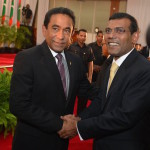
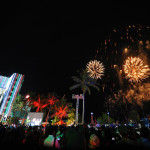
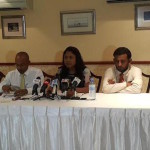
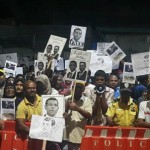
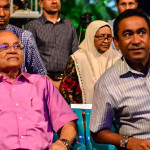
The Maldives also faces numerous other human rights challenges most notably, discrimination against women. Not matter how much some may triumph the new Constitution as removing the final bar to women's right, numerous restrictions to women's full enjoyment of rights and freedoms still prevail.
these range from negative stereotyping to institutionalised discrimination that are mostly attributable to societal mindsets influenced also by religious interpretations.
Unless women themselves shred off their own internalisation of dsicrimination, they will continue to face dscrimination.
its a sad state of affairs.
Human Rights in Maldives: yeah right !!!
The only rights in this country at the moment are MDP and Anni rights.
So is it all a misunderstanding and growing up pains? What about the human rights deliberately denied in the 2008 constitution?
The Press Secretary is deliberately seeming to be humble. He should first note that the type of tortures meted out to people like him are a now of the past. The pillories, the bashing ups, the murders of detainees are forever gone. And from when? From the date this new administration came in.Now, ofcourse there are new challenges. But torture in the jails and malicious treatment of politically perceived opponents shall not be amongst them.
Zuhair,you did it again! Sharing internal political problems with the media. You try to solve it NOT talk about it.
Its all "NATO" no action talk only.